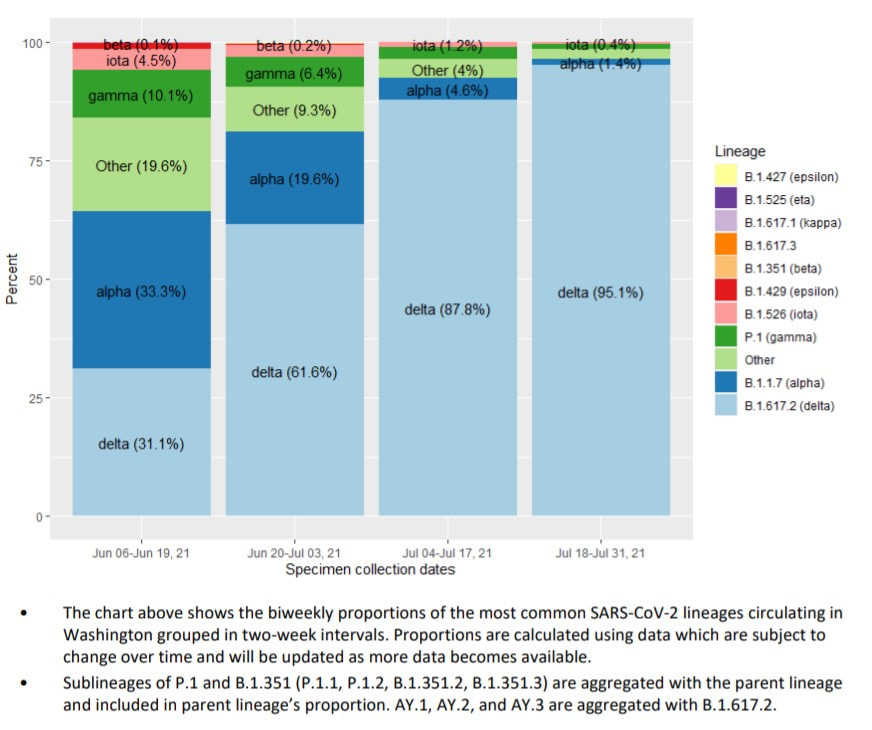 We’ve received a lot of questions about how we determine whether a person who tests positive for COVID-19 has a variant of the virus. The COVID-19 test you’re given when you go to your doctor’s office or a drive-thru testing site detects the SARS-CoV-2 virus (the virus that causes COVID-19) but does not differentiate between different strains (or variants) of the virus. That’s why your provider may say they can’t test for variants. Determining whether a person is infected with a variant of the SARS-CoV-2 virus requires a process called genomic sequencing. That work is done at labs using the specimen collected to test for COVID-19. Genomic sequencing looks at the virus genes for mutations specific to the different variants. If a mutation is detected in a specimen, it means that person was infected with the corresponding variant. Not all specimens are sequenced – it’s just not feasible to sequence every specimen. But the state does sequence a representative sample of all confirmed cases from across the state. Because the sample is representative – meaning the cases in the sample group reflect the overall cases in the state – it can be used to estimate the prevalence of variants in the state. The most recent sampling estimates that 95.1% of all cases in Washington are likely attributable to the Delta variant. The state issues a report every Wednesday with data on variants in the state, including the number of cases in each county and the prevalence of variants based on the sequencing of the representative sample of cases. You can find that report here: https://www.doh.wa.gov/.../420-316...
0 Comments
Leave a Reply. |
|